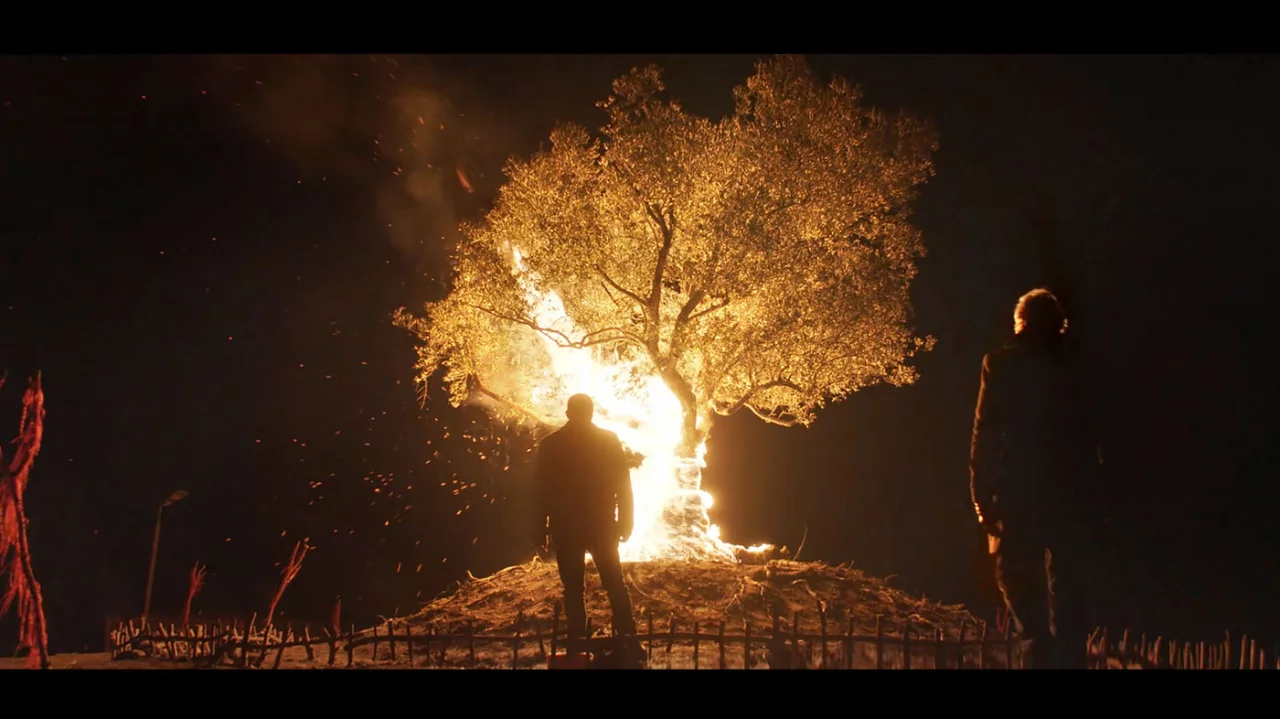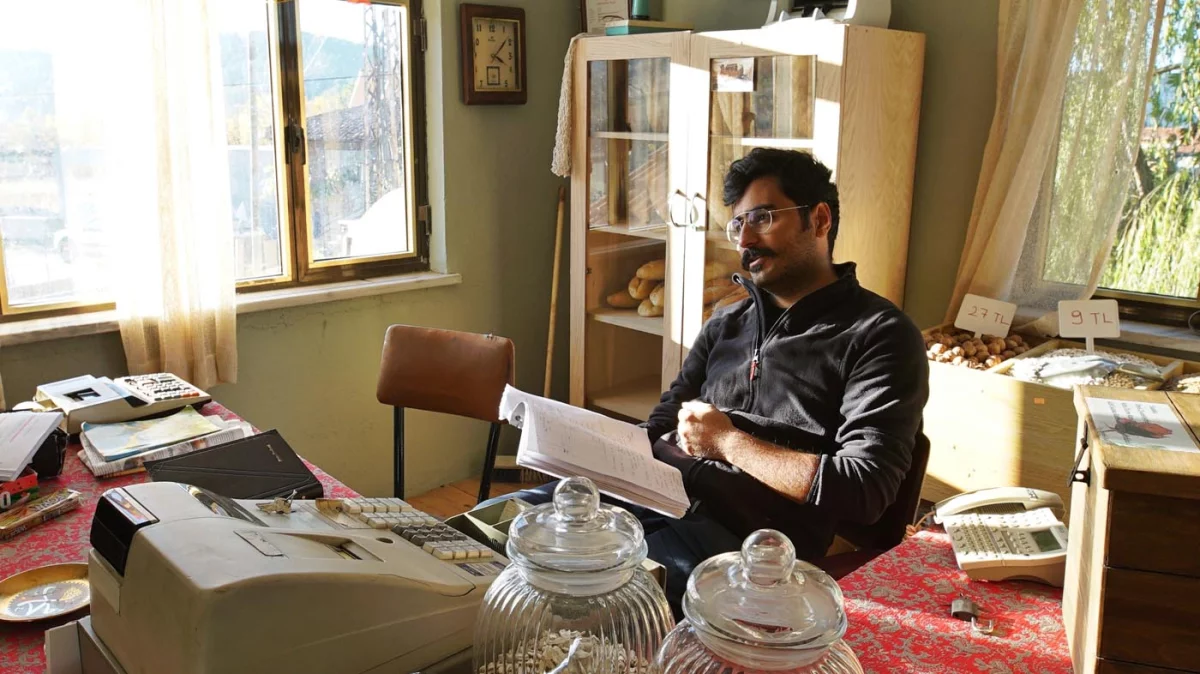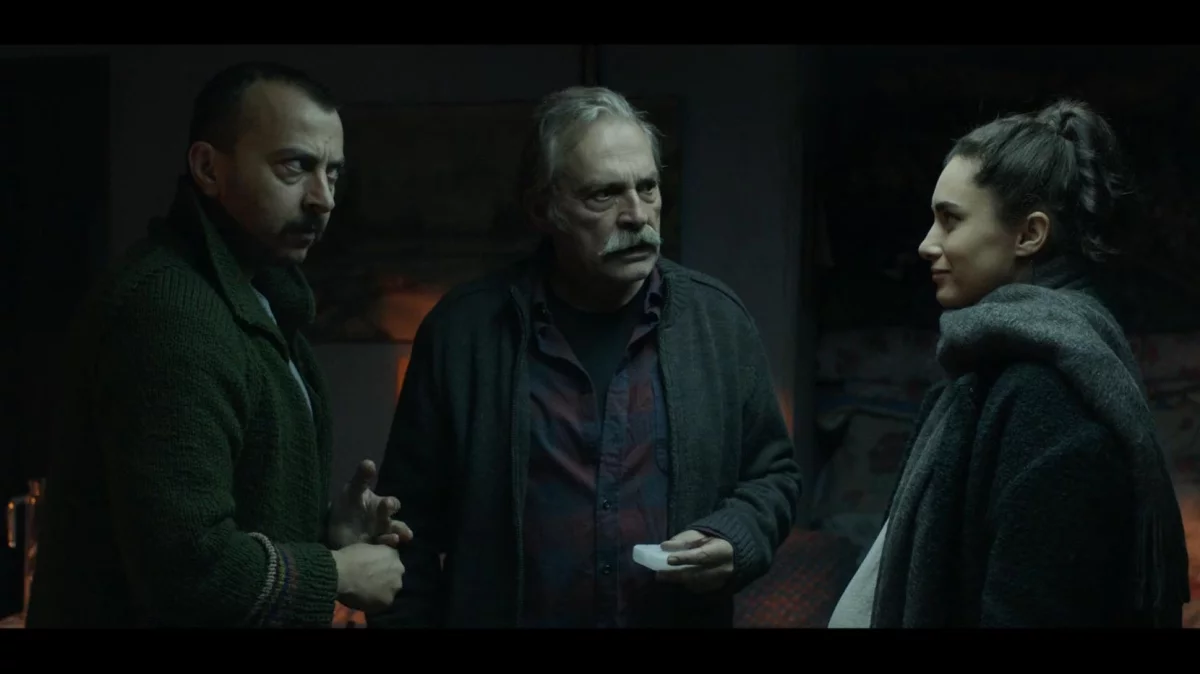Father + son + tree = great story
06.03.2019 | "Noah Land" at the Tribeca Festival 2019

A son accompanies his father on his last journey to his home village: "Noah Land", the feature film debut of up-and-coming Turkish director and Script Writer Cenk Ertürk, will be screened at the upcoming Tribeca Film Festival in New York. We met up with Cenk and his Hamburg-based Executive Producer Titus Kreyenberg (klinkerfilm) to talk about his debut film.
Noah Land is about a son who accompanies his father to his old home village shortly before his death, even though the two did not have a good relationship in the past. The father wants to be buried under the Noah tree, which he apparently planted himself as a child. But after his departure from the village, the tree has become a sacred pilgrimage site - so a burial is out of the question and a battle ensues between the villagers and the father/son team. How did you come up with the story?
Cenk Ertürk: There is a tree in Turkey that is called the Moses tree. However, I didn't know anything about this when I wrote the story. However, there are sacred trees or buildings all over Turkey to which people tie ribbons in order to make a wish. That's part of our culture. In the film, for artistic reasons, we decided not to use red ribbons but sticks stuck in the ground in front of the tree. When I started writing the script, I only had one thing on my mind: I asked myself what could stop me from cutting down a tree. Then came the Noah tree and the father-son story.

How long did the work on Noah Land take in total?
Cenk Ertürk: Five years ago, I started writing a script in a writing class at university. I honestly didn't believe in the story until I had to pitch it as part of the seminar. My professor came to me afterwards and said that it was a great story - but that I shouldn't realise it as a short story - as originally planned - but as a feature-length film.
And what did you change once you knew it was going to be a feature-length film?
Cenk ErtürkThis way, of course, I had more room for other characters. It was no longer just a film about father and son, but I wrote the village, the mayor and of course the son's wife into the story.
What was the biggest challenge in the project?
Cenk ErtürkAli Atay and Haluk Bilginer, the main actors in the film, are superstars in Turkey - and that was sometimes really exhausting. On one day off, for example, we had a meal and someone kept coming to talk to the two of them.
Many people asked me beforehand if I was really sure that I was confident enough to give instructions to these stars. And on the first day, I was actually a bit scared. We were shooting the first scene and the actor playing the son (Ali Atay) didn't want to listen to my suggestions. I asked him: "When your father enters the room in this scene, why are you looking at him? And he replied, "Because my character is brave and not afraid. This is my chance to face him." I just said: "Just try not to look at him." Of course, that didn't make sense to him at first, as he wanted to portray his character as fearless and brave. When we had this little discussion, Haluk Bilginer wasn't in the room so he didn't know what we were talking about. When we finally tried out the scene again with my suggestion, he came to me after the scene and asked: "What did you change in the scene? I felt really hurt and attacked by my son in the scene - that helped me a lot for my play." So my idea worked in the end. But sometimes it's not easy as a young filmmaker to give direction to experienced actors.

So why did you choose such famous actors for your film in the first place?
Cenk Ertürk: Even when I was writing, I always had Haluk Bilginer in mind, who now also plays the father. However, it took almost a year for him to agree to the role. After that, however, it was much easier to get hold of the other actors, as everyone in Turkey wants to play him. And with Ali Atay, I just knew that he was full of surprises and that his acting was intense and real - there are no "fake scenes" that come across as unrealistic. In one of the fight scenes, he even broke a rib, that's how much he put into it. Fortunately, the film was almost finished at that point - we could certainly use the story for advertising purposes later (laughs).
What is the moral of the story?
Cenk ErtürkThe film is generally about acceptance and not judging others too quickly - and not clinging to the past.
Titus KreyenbergIn addition, both father and son learn more about themselves.
Cenk Ertürk: That's true. And someone once said to our Greek editor, who incidentally also edited "The killing of a sacred deer" and "The Lobster", that the film is about a man who is afraid of becoming a father. I think that's a nice way to describe the film.
How did the collaboration with klinkerfilm come about?
Cenk ErtürkWe met at the CineMart festival at the Co-Production Market in Rotterdam - and I immediately thought they were great, because Titus and his people have already produced another film from Turkey that I love. We've stayed in touch and I've kept him updated on the progress of the writing.
Titus KreyenbergAnd then Linus Günther and Sophia Ayissi Nsegue from my team took over. As soon as it was clear that we would receive funding from Filmförderung Hamburg Schleswig-Holstein, Linus travelled to Turkey to get to know the other Executive Producers and the team - because unfortunately that doesn't work via Skype.
What else has changed in the film in the last few months?
Cenk ErtürkFor example, the first cut of the film was two and a half hours long, the second cut was two hours and fifteen minutes - now we're at one hour and 45 minutes. Sometimes you need some distance to see which scenes are really important for the film and which are not. Of course, this is sometimes sad for me as a Director and especially for the actors, but it benefits the film and ultimately the viewer.
What else can we expect from you in the future?
Cenk Ertürk: I actually already have three new stories in mind, which I'm currently putting down on paper at the same time. They'll be more about things I've experienced myself in recent years - so no more father-son stories for now.



.jpg?fit=max&w=800&h=4672&q=90&fm=webp)


2026_schubert,row-pictures,walker-worm-film,gerald_kerkletz.jpg?fit=max&w=800&h=1351&q=90&fm=webp)